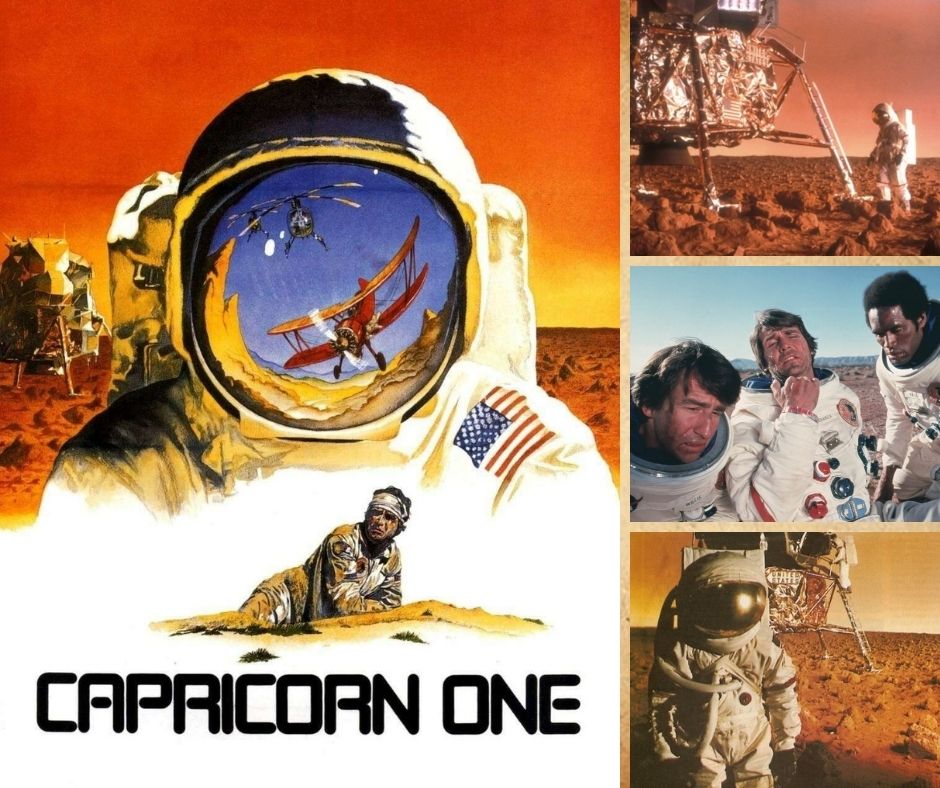Capricorn One (1977)
Fantastic Premise, Bland Characters.

Before a fake, filmed trip to the moon became the backdrop for a rom-com starring Channing Tatum and Scarlett Johansson in Fly Me to the Moon, it was the core of a conspiracy thriller in the ’70s. In Capricorn One, a fictional NASA mission to Mars is deemed too risky to attempt, so just before takeoff, the astronauts are pulled from the rocket and forced to fake the landing on a soundstage. After a not-so-subtle threat to their families, they go along with the plan—and the world buys it. Everything runs smoothly… until the real rocket explodes on re-entry, and suddenly, NASA has a problem: it can’t let the astronauts live.
That setup is gold. It works far better for a thriller than a romantic comedy, and honestly, even the most competent execution would be enough to carry it—and that’s exactly what we get here. Director Peter Hyams, transitioning from British TV to film, keeps the first half tight and suspenseful. The plot unfolds clearly, and there are some clever sequences—like a high-speed drive in a car with sabotaged brakes—that make good use of the limited budget.
But the film’s real ace is Jerry Goldsmith’s score. Goldsmith had a gift for turning mediocre movies into memorable ones, and his work here does just that. The main theme alone—thrilling and propulsive—paired with the premise is enough to make Capricorn One a solid recommendation.
But not a must-see. And that’s mostly because of how flat and underwritten the characters are. In true Shyamalan fashion, they barely speak like human beings. The astronauts are written and played in such a simplistic way that they come off as slow to grasp the situation—how did they ever get through NASA training? We learn almost nothing about them, and there’s no real personality or backstory to latch onto, which is a big issue for a story that hinges on you caring whether they survive. And then there’s the wife, played by Brenda Vaccaro, who once again tries to sound like the cool one and fails miserably.
James Brolin, Sam Waterston, and O.J. Simpson barely register, but Elliott Gould fares better as the nosy journalist. He brings charm and energy, and his investigation ends up being the film’s most engaging element. Still, the pacing drags during his repetitive conversations with the wife, and later during the extended search for the missing astronaut. It all leads to a final shot so cheesy it confirms the director wasn’t quite ready to stick the landing.
In the end, Capricorn One is a great shell of a movie—slick premise, capable direction, fantastic score—but it feels empty at its core. It hooks you early, but slowly turns into something much more ordinary. Still worth seeing for what it gets right, but it’s hard not to imagine the better version we could’ve had with stronger characters and more emotional weight.